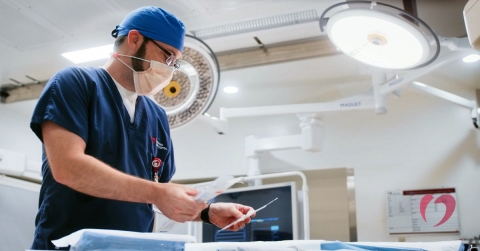Reducing Risk of Infection After Surgery

Even the simplest surgery can be hard on the body. When the body is stressed and recovering, it is vulnerable to infection, which can slow and complicate healing. The good news is that there are many simple ways of preventing infection following surgery. Doctors and hospitals are experts at creating and following protocol to minimize risk of infection after surgery, but there are also steps that patients can take before and after surgery to prevent infection.
Steps to take before surgery
Before surgery, it’s important to avoid sources of potential infection and to strengthen your body’s defenses to help fight any infection it might encounter. If you have some lead time before surgery, take the opportunity to improve your overall health and well-being.
Keep up with your healthy habits, such as regular exercise and eating lots of fruits and vegetables. If you are a smoker, it is a great time to cut back or try to quit. During your pre-op appointments, discuss other health issues with your doctor, such as diabetes. Overall, the healthier your body is going into surgery, the better it will fight off any signs of infection.
Your doctor will provide you with a list of pre-surgical instructions for the days immediately before your surgery. These may include hygiene-related tasks, such as showering and washing the surgery site with a particular cleanser. After your shower, avoid using products like makeup, deodorant, or lotion that may reintroduce bacteria to the surgery site.
Additionally, consider limiting contact with other people in the days leading up to your surgery to decrease your exposure to viruses or other types of infection that will add extra stress to your body during surgery and recovery.
Precautions during surgery
During your surgery, your medical team will take care of providing a sterile environment and reducing the risk of infection. These measures include regular sanitizing of hard surfaces, frequent handwashing, and wearing protective masks and gowns. Visitor guidelines in place also help maintain a safe environment for patients, so be sure to review the latest visitor policies and ask your friends or family to follow them. Asking visitors to wash their hands, wear a mask, and avoid visiting the hospital if they have any signs of illness is important to the health of all patients.
Steps to take after surgery
As you head home after surgery, you will be given discharge instructions. Following discharge instructions is crucial to avoiding post-operative infection. The wound at your incision site is the most vulnerable spot for infection, and following the wound care instructions provided by your doctor will aid in healing and reduce infection risk. Continuing healthy eating habits and resuming physical activity as directed by your doctor will give your body the best chance at healing well. Also, continue to limit your contact with large groups of people, those who are sick, or those who have a high risk for becoming sick. The less exposed you are during recovery the better.
There is always some risk of infection after surgery, but there are many simple steps you can take to reduce the chances of developing an infection. Take the time before and after surgery to strengthen your body, reduce your exposure, and follow all instructions provided by your doctor before and after surgery.




